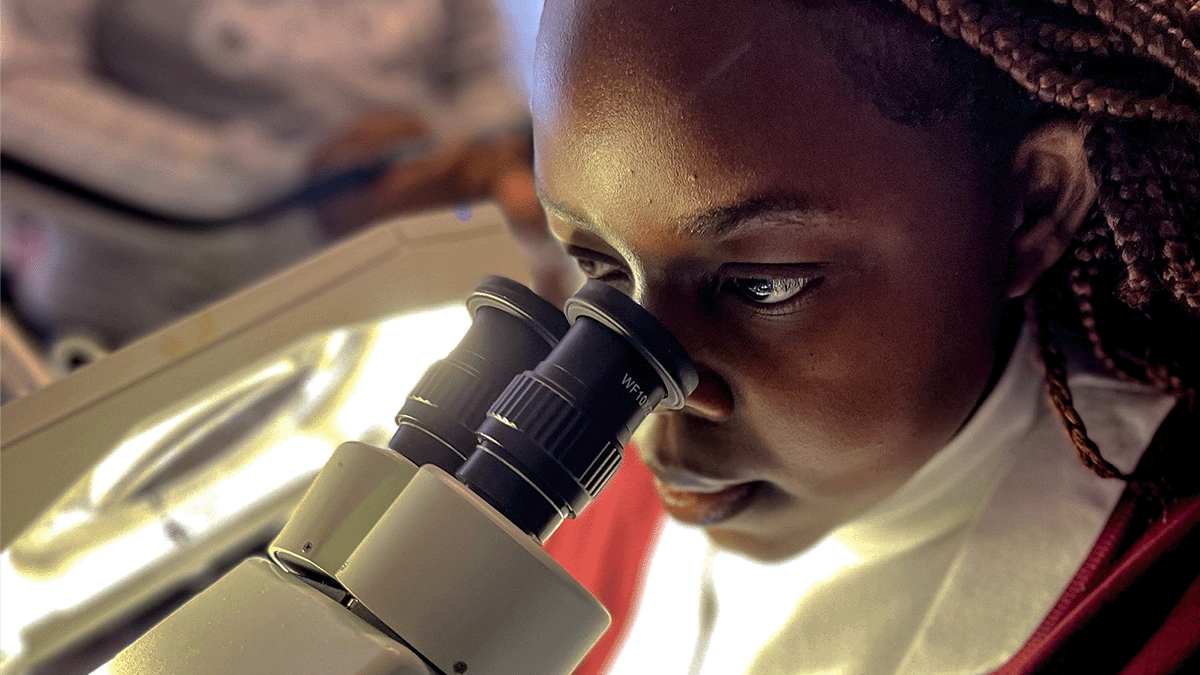
Introducing Undergraduates to Interdisciplinary Research Through Cross-State Collaboration
By Evan Bartow, Writing Intern
Focused on gathering, analyzing, and utilizing data collected from the Northern Forest Region, the NSF EPSCoR Track-2 INSPIRES project invested heavily in the creation of new environmental sensors. The development of these sensors is led by the WiSe-Net Lab under the direction of Ali Abedi, Associate Vice President for Research and Professor of Electrical and Computer Engineering at the University of Maine (UMaine). Expanding the current sensing capabilities of forestry researchers, the INSPIRES team developed wireless environmental sensor modules equipped with networking and AI capabilities.
INSPIRES researchers set out to create new devices that fit the needs of forestry researchers and improve upon current sensor technology. These new devices provide “low power and low cost sensor nodes that outshine the current market,” Thayer Whitney, a UMaine graduate student, explained. This new technology helps forestry researchers measure soil moisture, humidity, temperature, and the diameter of trees. Through the creation of these devices, the INSPIRES project has helped forestry researchers quickly and efficiently collect data from the environment.
Throughout their project, the INSPIRES team helped create more than just new sensory technologies. During a process of collaboration between Alabama Agricultural and Mechanical University (AAMU) and the members of WiSe-Net Lab, both groups helped facilitate student educational opportunities and new relationships for their respective universities.
Education is at the heart of Maine EPSCoR projects because of how scholarship, mentorship, and collaboration drive innovation and growth of research capacity. In collaboration, the INSPIRES team exemplified the mission of NSF EPSCoR through the development of wireless sensor technologies, new relationships, and student learning.
Raziq Yaqub (Associate Professor of Electrical Engineering and Computer Science at AAMU) began this collaboration while acting as a mentor for electrical engineering students at AAMU, Mphande Phiri, Howard Harris, and Femi Olateru-Olagbegi, who worked with him on their senior design projects. With an extensive background in wireless technology, Yaqub was drawn to INSPIRES due to its function and design. To begin their project, seniors at AAMU studied current sensor technology by reviewing scientific literature, learning about the development process, and exploring alternative use cases for the technology. Yaqub and his students traveled to UMaine in January 2023, where the INSPIRES team introduced them to the UMaine WiSe-Net Lab and wireless sensor devices.
At the WiSe-Net Lab, Whitney and Kenneth Bundy, UMaine Research Consultant, provided the AAMU students with essential step-by-step directions regarding the development of these devices. Whitney assisted students in the building of the sensors, leveraging his previous experience in assembling the hardware for the INSPIRES. With a strong background in machine learning, computer science, and mathematics, Bundy provided knowledge on the software associated with the devices. After their visit to UMaine, the AAMU seniors gained valuable hands-on experience that assisted them in their development of similar devices with the specifications necessary for research conducted in Alabama.
This partnership was facilitated by Yaqub and Abedi with the goal to provide benefits to both universities. Yaqub explained that this project brought “essential interdisciplinary research skills” to his students and was especially appreciative of both Abedi and the INSPIRES team’s hospitality and time. By visiting UMaine, the students received an essential learning experience driven by the Maine researchers. This experience further demonstrated the interconnectedness of research areas and illustrated the importance of collaborative research to the AAMU students.
While the direct goal of this collaboration was to benefit the students, Abedi sees how this partnership and others benefit INSPIRES. “Collaborations like this helped the UMaine team expand the applications of the research and develop devices to cover new environments and new applications,” Abedi explained. These types of collaborations help facilitate greater learning and the development of new communication and teaching skills for INSPIRES team members.
Partnerships like the one between UMaine and AAMU are also essential for the development of new technologies. By bringing together individuals with diverse thoughts and backgrounds, projects can be pushed forward and taken in new directions. Throughout the development of these wireless sensor modules, INSPIRES was not only able to create market-leading environmental sensors, but was also able to expand research capabilities nation-wide.
